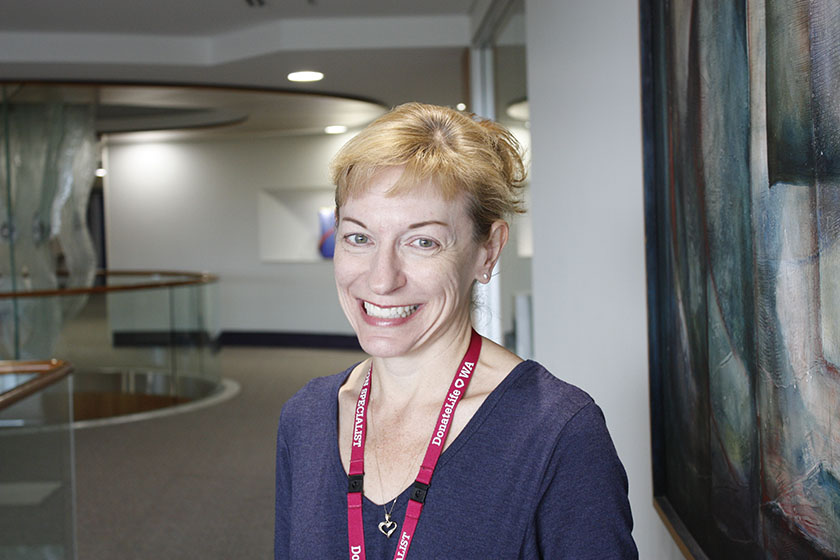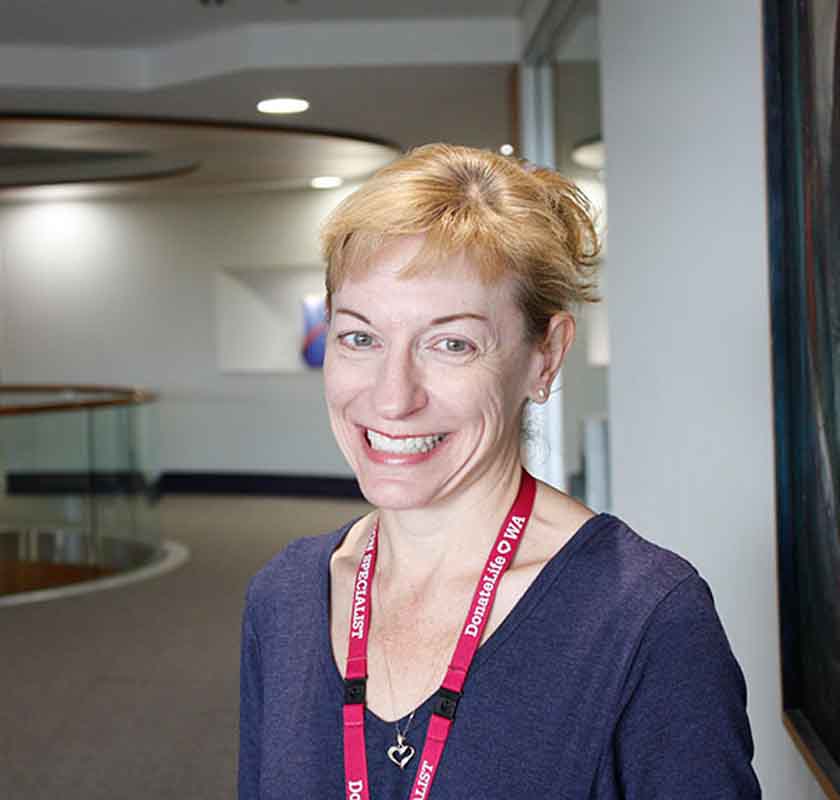St John of God Health Care’s DonateLife Clinical Nurse Specialist Organ and Tissue Donation Linda Thomas is passionate about saving and enhancing people lives through organ and tissue donation.
Last year there were three organ donors and one tissue donor from St John of God Midland Public and Private Hospitals, eight tissue donors from St John of God Murdoch Hospital and two tissue donors from St John of God Subiaco Hospital.
Below she lists what she wished everyone knew about donation.
1. The majority of Australians support donation
Research and experience shows that the majority of Australians support donation, however, they often do not record their wishes or speak to their family about it.
This can lead to confusion about what the person would want in the event they become eligible to be a donor. It is not an easy decision for the family and without knowing that their loved one would have supported the decision, it can be hard for them to say yes.
2. It’s not enough to register your intention on the Australian Organ Donor Register
Even if you register yes on the Australian Organ Donor Register, your next of kin will have to confirm that decision before donation can proceed.
This is why it is incredibly important to talk to your family and friends about your wishes. If they do not know, they cannot make the right decision for you.
3. The majority of religions allow donation
In general, only two religions do not support donation, which are Romani and Shinto. All other religions are generally supportive of organ and tissue donation.
If needed, DonateLife can bring in religious leaders to discuss the topic with families. We can also organise any other support the family may need to help them.
4. You are not too old or too young to be an donor
There are no minimum or maximum ages; anyone can potentially be a donor.
Everyone is assessed individually and a decision is made depending on organ function, medical history and the donors and families wishes.
5. Being a smoker, drinker or having cancer does not automatically preclude you from donating
Eligibility for donation depends on the function of the organs being considered for donation.
We complete a very detailed medical, social and lifestyle history to ensure that the organs and tissues are safe and suitable for donation and transplantation.
6. Only the sickest people make it onto the transplant list
Some families worry that their loved ones donation might not go to the most suitable recipient.
All recipients are extensively screened for their suitability. This includes a physical and psychological assessment to ensure they are the best possible recipient.
7. Donation is a wonderful, lifesaving thing to do
Families often anecdotally and through research say they find some comfort and positivity by helping others through donation.
It can help them come to terms with what they have gone through, and they feel a sense of peace by being able to save or enhance someone’s life.
About the author
Linda Thomas is a clinical nurse specialist working in the area of organ and tissue donation. She works for DonateLife and consults at St John of God Health Care hospitals and Princess Margaret Hospital liaising with and educating patients, their families and staff on organ and tissue donation.


